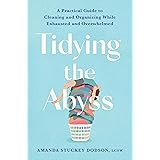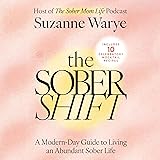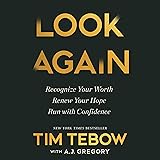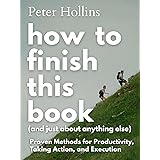The journey of personal growth and self-improvement is a continuous path, one that requires consistent effort, introspection, and a commitment to evolution. In today’s fast-paced world, individuals often seek guidance on how to become more productive, resilient, and effective, not just for their own well-being but also to contribute positively to their communities. Sheikh Bilal Assad’s insightful discussion, accompanying the video above, delves into fundamental principles that lay the groundwork for robust personal development, particularly emphasizing the virtues of accountability and resilience from both a practical and spiritual perspective. His message resonates deeply with anyone striving for excellence and inner strength.
The core of this compelling discourse is encapsulated in the profound Islamic teaching: “Al-Mumin al-qawiyu khairun minal-Mumin adh-dha’if” – meaning, “The strong believer is better than the weak believer.” This concept extends far beyond physical strength; it encompasses spiritual fortitude, mental resilience, strong willpower, and robust character. True strength, as highlighted by Sheikh Bilal Assad, involves not just one’s faith, but also their resources, health, and overall ability to navigate life’s challenges. Achieving this holistic strength is a vital aspect of ongoing self-improvement.
Embracing Personal Responsibility for Growth
A cornerstone of effective personal development is the unwavering commitment to taking responsibility for one’s actions, choices, and their subsequent outcomes. Far too often, people find themselves in a cycle of blame, attributing their shortcomings or failures to external circumstances, other individuals, or even fate. This tendency to deflect accountability can be a significant impediment to growth, as it prevents introspection and the critical self-assessment needed to identify areas for improvement.
Taking responsibility means acknowledging mistakes without hesitation and celebrating successes with gratitude. It signifies an individual’s ability to respond thoughtfully to situations, rather than simply reacting. Sheikh Bilal Assad eloquently points out that admitting when you’ve done something wrong is not a sign of weakness, but rather a testament to one’s integrity and a crucial step towards rectification and genuine self-improvement. It empowers you to learn from errors and actively seek better approaches in the future.
Overcoming the Culture of Excuses
In the pursuit of personal development, the habit of making excuses can be a formidable adversary. Excuses serve as convenient shields, protecting individuals from confronting their own roles in undesirable outcomes. Whether it’s blaming a new juice blender for being late to work or a dream for oversleeping, these justifications, while sometimes humorous in their absurdity, collectively erode personal accountability and prevent meaningful progress.
The video shares a relatable anecdote about a colleague advising, “Just wake up 10 minutes earlier” to combat lateness. This simple yet powerful suggestion underscores a crucial truth: many of our perceived limitations are actually decisions. Laziness, much like energy, is a choice. While acknowledging genuine circumstances like illness or fatigue, a strong believer strives to minimize excuses and maximize proactive solutions, recognizing that effective self-management is a conscious decision. This commitment to proactive solutions significantly propels self-improvement.
Mastering Efforts: The Art of Completion
A profound aspect of strength and self-improvement lies in the commitment to mastering whatever task one undertakes. As the Prophet Muhammad (peace be upon him) taught, “Allah loves a servant that when he or she decides to do something, a good project, masters it.” This principle encourages perseverance and diligence, urging individuals not to abandon their endeavors halfway, even when confronted with obstacles or setbacks. It fosters a spirit of tenacity essential for long-term success.
The journey of mastering a task is often fraught with challenges, yet it is through these trials that character is forged and skills are honed. Imagine the companions of the Prophet (PBUH) learning about rituals like Tayammum or Wudu even amidst the chaos of battles; this exemplifies a continuous commitment to learning and development, irrespective of external circumstances. This constant learning and dedication to seeing tasks through to the end are vital components of comprehensive personal development.
Learning from Every Failure
Failure is an inevitable, often painful, component of life’s journey, yet it holds immense potential for growth and self-improvement. The speaker highlights the importance of not being deterred by failure but rather embracing it as a learning opportunity. The battle of Uhud, where believers faced a setback, is cited as an example where wisdom and valuable lessons emerged from apparent defeat. “Don’t assume it as bad for you; rather it is good for you,” a Quranic verse reminds us, emphasizing the hidden goodness within difficulties.
The genius of innovators like Thomas Edison, who famously documented 260 ways a light bulb would not work before finding success, perfectly illustrates this principle. His numerous “mistakes” were not failures but integral steps in his learning process. For those dedicated to personal growth, this means if you fail, you must try again, but crucially, try a different way. Repeating the same actions and expecting different results, as Einstein noted, is a mark of stagnation, not progress. This iterative approach to overcoming challenges is fundamental to sustained self-improvement.
Navigating Blame and Difficult Relationships
A significant barrier to self-improvement is the tendency to consistently blame others—family, teachers, or even society at large—for personal problems. While external factors can undoubtedly influence circumstances, a mature approach involves shifting focus from external blame to internal agency. Instead of dwelling on who or what is at fault, the empowering question becomes, “What can I do?” This mindset reclaims personal power and redirects energy towards constructive action.
This principle extends to navigating difficult relationships. The immediate impulse to “cut off” or “block” individuals perceived as toxic, while sometimes necessary, isn’t always the most comprehensive solution. Islamic scholarly wisdom advises, “If you can’t take it all, don’t leave it all.” This suggests maintaining some connection, even if minimal, as a pathway for future reconciliation or guidance. The example of Prophet Noah (peace be upon him) continuously calling his son to faith until the very last moment serves as a powerful reminder of perseverance in maintaining ties, even when facing significant differences. This nuanced approach to relationships fosters greater emotional intelligence and resilience, essential for holistic self-improvement.
Dispelling Superstitions and Misguided Beliefs
In the pursuit of self-improvement, it is critical to ground one’s decisions in rationality, knowledge, and sound spiritual principles, rather than succumbing to superstitions or misinterpretations. Sheikh Bilal Assad addresses the common pitfalls of attributing life decisions solely to dreams, believing in pervasive magic, jinn, or the evil eye without solid evidence. He clarifies that while the concept of the evil eye is real (“Al-Aynu Haqq“), its occurrence is exceedingly rare—historians of the Prophet’s era mention only two or three incidents over 53 years, a stark contrast to how frequently it is cited today.
Similarly, dreams, while sometimes carrying meaning, should not be elevated to the status of divine command or used to manipulate others. The emphasis should remain on the Quran and the teachings of the Prophet (PBUH) as primary sources of guidance. A healthy skepticism towards exaggerated claims of supernatural interference, coupled with a focus on practical solutions and self-effort, empowers individuals to overcome perceived obstacles rather than being paralyzed by unfounded fears. Such a rational and faith-based approach is crucial for robust spiritual and personal development.
The Power of Authenticity and Self-Honesty
The journey of genuine self-improvement culminates in an honest confrontation with one’s own self. Authenticity begins with a sincere self-assessment, sitting down to identify personal faults and shortcomings. Sheikh Bilal Assad shares his personal experience of listing 53 problems within himself, not as an exercise in self-deprecation, but as a constructive step towards growth. This courageous act of self-honesty is far from a sign of low self-esteem; instead, it is the initial catalyst for profound transformation.
Recognizing areas for improvement provides a clear roadmap for intentional change. It moves beyond flimsy excuses and external blame, grounding the individual in a realistic understanding of where they stand and what needs to be done. This authentic introspection is an invaluable tool for continuous self-improvement, fostering a mindset that constantly seeks to refine and strengthen one’s character and capabilities. By truly understanding oneself, a strong believer can strategically work towards becoming a more productive, resilient, and virtuous individual, fulfilling the comprehensive vision of personal development.
Laying the Bricks: Your Self-Improvement Q&A
What is the main idea of self-improvement discussed in the article?
The article emphasizes building holistic strength, meaning developing not only physical ability but also spiritual fortitude, mental resilience, strong willpower, and a robust character. This approach helps individuals better navigate life’s challenges.
Why is it important to take personal responsibility for growth?
Taking responsibility means acknowledging your own actions, choices, and their outcomes without blaming others. This is crucial for growth because it allows you to learn from mistakes and actively seek ways to improve yourself.
How can I overcome the habit of making excuses?
To overcome excuses, you should recognize that many perceived limitations are actually choices you make. Minimizing excuses and focusing on proactive solutions helps you take charge and make meaningful progress in your self-improvement journey.
What should I do when I experience failure?
Failure should be embraced as a learning opportunity, not a deterrent. If you fail, try again, but crucially, try a different way, as repeating the same actions will likely lead to the same results.
What does ‘authenticity’ mean in the context of self-improvement?
Authenticity means honestly confronting and assessing your own faults and shortcomings. This sincere self-assessment acts as a powerful catalyst for profound transformation, guiding you toward intentional change and growth.








